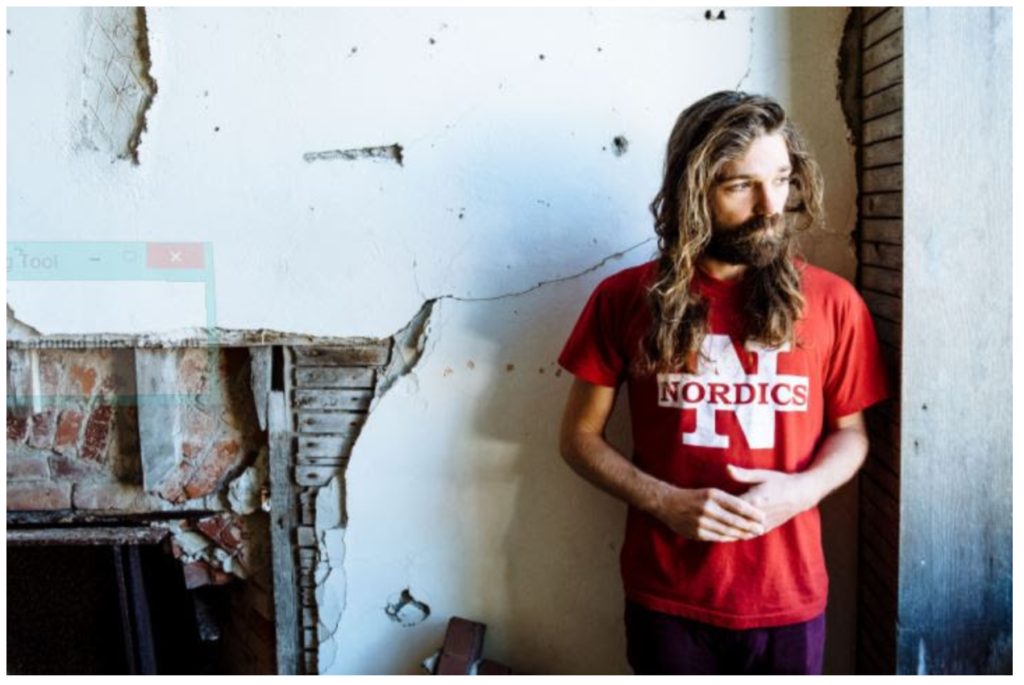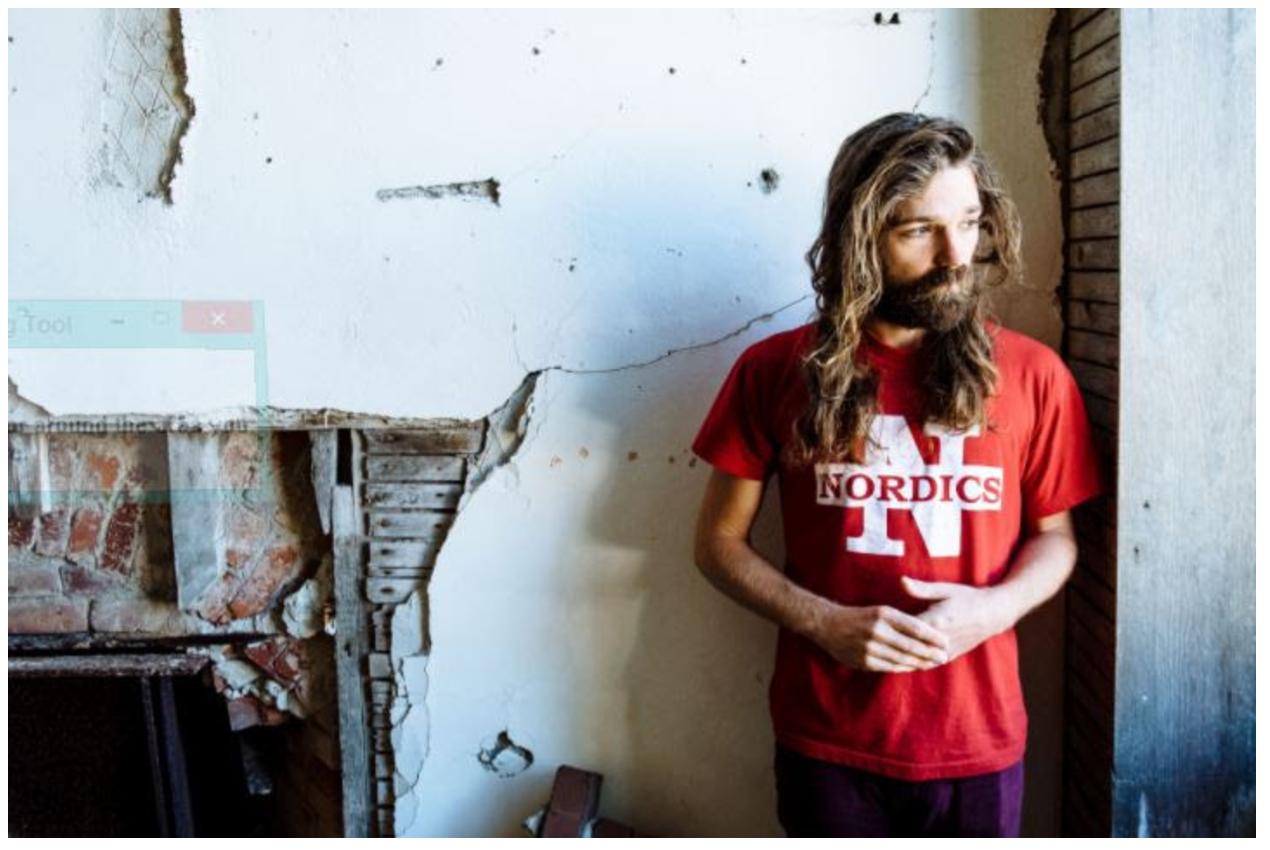An Interview with Twain: Rare Feeling
On Sunday, Twain will open things up for Big Thief at The Sinclair. Mt Davidson, who has a long history in Americana/folk circles (The Deslondes, Spirit Family Reunion, The Low Anthem), is releasing his new album, Rare Feeling, on October 20. The first single, Solar Pilgrim, is already out in the world.
I can’t recommend enough that you should listen and relisten and relisten to these songs. There is such depth and beauty in them. It’s a record that bears careful and attentive listening and it will surprise you with each spin. The lyrics are spare and simple, but eschew the song structures (verse, verse, chorus, bridge, chorus, verse, chorus, out) that inhibit us from saying what we mean. It was a real pleasure to talk to Mt about this record, about how the way we listen to music now might shift our thinking about albums, and giving up control.

RLR: I was laughing the other day, because I downloaded this album, iTunes classified it as “unknown genre,” which I think is pretty accurate.
MD: I love it. I’ve been looking for the right phrase for a while.
RLR: How important is it to you to explore a wide variety of genres?
MD: I don’t really like those words, and I don’t know anybody who does, really, who plays music, but it’s necessary. And I think they’re just dying away. Just like, the more you get into world history, the more you realize that there’s no beginning or end to anything–to cultures or countries and it’s the same with genres. It’s fake, but it’s kind of necessary just to talk to each other.
RLR: What’s make you say that it’s dying away?
MD: Well, mostly it’s a feeling. And maybe I have an isolated perspective, because I’m basing it off the six or eight bands I’m with a lot, that I talk to a lot. I just think in general that the music I’m hearing is a reaction to that. A lot of times it sounds like an effort to not sound like anything, and then it always sounds like exactly the thing you’re trying not to sound like. But it’s indicating that we don’t want to get pigeonholed anymore and want our own personalities.
RLR: Lyrically, this album seems to really focus on communicating without being overly concerned about the trappings of songs, like conventional rhyme schemes. Can you talk a bit about how you approached the lyrics for this set of songs?
MD: I don’t have much of a consistent method. In the best moments, the songs just kind of get delivered. As far as the songs that are more crafty, I generally start with one line, or one very broad concept–something that I really want to sing about and can make a viable song. Maybe a few months from then, that song comes along or there’s some blank piece of music that gets to be the vessel for that idea. I’ve been feeling really stuck in that–like all I can do is have a rational argument or thought and then make a song about it, versus having a more divine feeling, something that feels even more meaningful than I can personally say and sharing that with people.
RLR: As a listener, it makes me listen more closely to the words because I’m not filling in what I think is coming–is that part of how you think about it too or is it just how the songs come to you?
MD: It’s both. Sometimes it just feels good, but it can really be a device to anticipate the anticipation and then redirect. With the right timing, it can be powerful.
RLR: It feels like a throughline on this album is really allowing for honesty in your own life and in relationships with others, as well as the ephemeral nature of experience. Or maybe, in general, just seeing things clearly. Can you talk about how you see these songs in conversation with each other?
MD: To be honest, I just kind of put them together. I mean, not without a great deal of care and worry, but there’s no story. That felt like a big failure, actually. The last one just felt really whole and this one was such a struggle to weld together.
Originally this was going to be the first disc of of two. The next one’s essentially going to be an extension of this one. But they’re from the same sessions, the bulk of the material is from this one weekend in Connecticut. And there’s more songs from that same session that will make up most of the next album.
RLR: It feels like these songs leave a lot of space for live versions to be spontaneous and creative –how much do you think about, as you’re writing, this idea of having flexibility for live performance?
MD: I haven’t thought much about it…until I didn’t have a band anymore. [laughs] And now I’m thinking about it a lot. I’ve been playing with these two guys, and they’re the only two people on the records. That sort of has broken apart over the past couple of years, and so I naturally started playing solo. I want to involve more people, but I don’t really know how. I haven’t even been writing any songs for that reason too–I feel frozen up about that. And I think it’s just a matter of letting go, and not needing to control everything, or even believing you have the option to control everything. Before, I would tell everyone what note to play. And that’s not very fun.
RLR: There is a real vulnerability in many of the lyrics and at those moments, there is an almost mantra-like quality–like “You’re going to have to learn to love the part of yourself you’ve hated for so long” or the repetition of “into your loneliness” on Black Chair. What drew you to that repetition as you were writing these songs?
MD: I haven’t thought about it very much, but it’s been happening in an even more exaggerated way during performances, just getting into long loops. I’m still blown away by a certain period of Van Morrison when he was just insistently saying a word or phrase until it had no meaning anymore; there’s a total meaning, but no literal meaning. There’s a word for that, when you hear a word so many times and you don’t hear [the meaning] anymore. But I don’t know if that’s what it’s about; it’s mostly just unconscious, I guess.
RLR: If we can talk a bit about the title track, “Rare Feeling, Version 2,” I feel like this would be a really interesting song for the Song Exploder podcast. There is the guitar melody that tracks right along with the vocal and the piano playing almost a harmony part, which becomes clearer and clearer toward the end of the song. Can you talk about how that song in particular developed?
MD: My friend Pete, who’s playing drums on the record, had this Buddha box that you can get from some Buddhist temples in Chinatown; it’s size of a tic tac case and it plays a few different prayers on repeat. I borrowed it and had it on for hours at a time. When I gave it back to him, that melody came around. It’s an old song; there’s an acoustic version of it on an EP. I kind of want to just keep recording it. It’s just a hard song to get right. In terms of the recording, it’s a live recording of the band in the studio, and then the piano was overdubbed at Montrose.
RLR: It’s kind of an interesting idea about revisiting things. It makes me think about Walt Whitman revising Leaves of Grass and republishing it. Sometimes an album feels more permanent than you want it to be.
MD: Yeah, it does, but the thing is, no one is listening to albums as much. I’m still really precious about it because I love records, and I know a lot of people do too. The way people, like the next generation, are going to find music, they’re not going to find records so much as artists. The more the artist has integrity, the more people will dig and give attention to their catalogue. The new world will look more like these single bodies of work, which is kind of beautiful.
I looked up that word Mt was looking for–the idea that you hear a word so many times it loses its literal meaning. The term is “semantic satiation.” And even though it is the term we talked about, there is something different I hear in this album: the repetition, for me, deepens the meaning, it doesn’t erode it. Or, at least, it causes me to look at the emotion from a different angle. Maybe there’s a term for that too. In any case, Twain is at The Sinclair on Sunday (tickets here) and you can pre-order Rare Feeling here, including 200 vinyl pressings with hand screen-printed jackets by Mt Davidson.
(Photo by Nina Westervelt)

